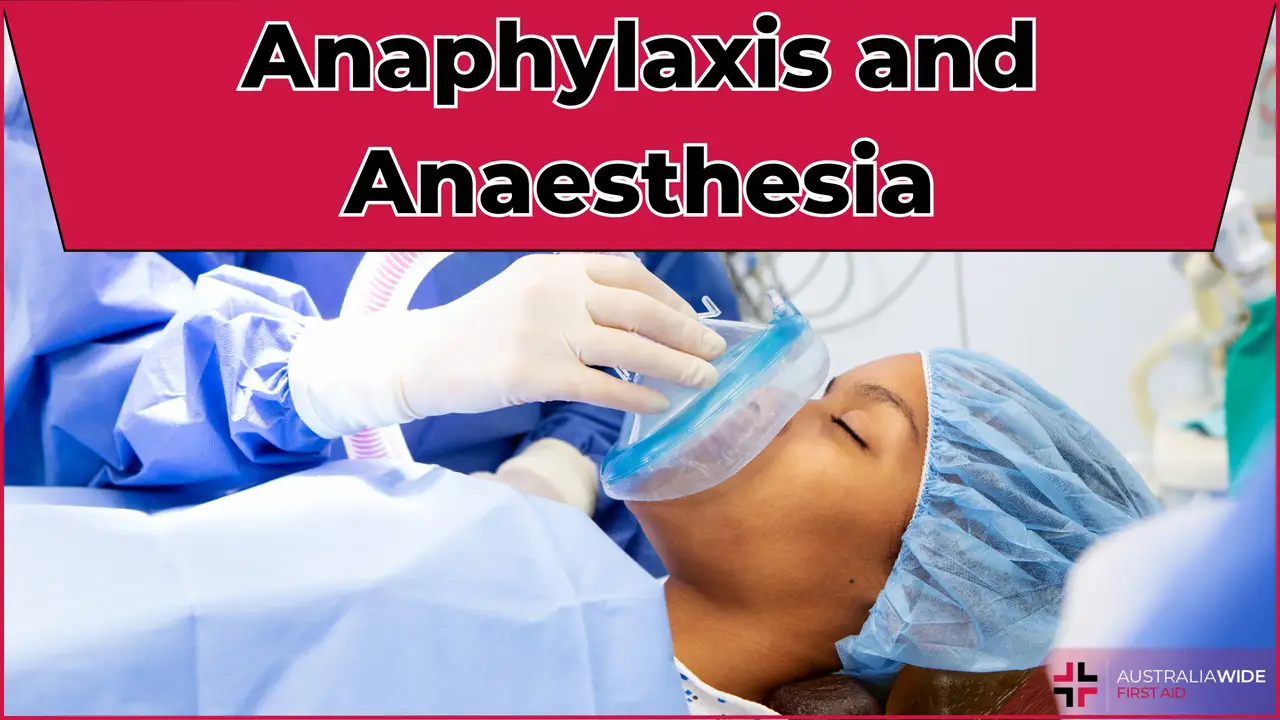Anaphylaxis and Anesthesia


Severe allergic reactions to anaesthetic are rare and only occur in approximately 1 in 10,000 to 1 in 20,000 procedures in Australia.
During day surgery, other factors such as antibiotics, natural rubber latex and neuromuscular blocking agents are more likely to trigger an anaphylactic reaction than the anaesthetic itself.
Severe allergies to anaesthesia are a serious problem because it may be difficult for your anaesthesiologist to observe some of the usual early symptoms associated with anaphylaxis. Symptoms that may be difficult to detect include light headedness and shortness of breath.
Although some warning signs are hard to identify during anaesthesia, anaesthesiologists are specially trained to recognise allergic reactions. If allergy symptoms, such as bronchospasm, swelling or hypotension, are detected your anaesthesiologist will act quickly to establish the appropriate treatment. This treatment may include administration of epinephrine (adrenaline), the insertion of a breathing tube, or administration of intravenous fluids.
If you have experienced an allergic reaction to anaesthetic or other medications in the past you should tell your anaesthetist. Your anaesthetist will then ensure that the substances you are allergic to are not used and will be prepared for a potential reaction.
During a typical general anaesthetic, a variety of drugs are given. If you have an allergic reaction during surgery, tests will be carried out afterwards to determine what you are allergic to.
Having an allergic reaction to one anaesthetic drug does not mean you can never have an anaesthetic again. If you or a family member have had an allergic reaction during surgery you should discuss this with your doctor and have tests to determine which substances you are actually allergic to.
For more information about anaphylaxis read ‘What is anaphylaxis’ or Guideline 9.2.7 by Australian Resuscitation Council.

October 2, 2013
In an asthma or anaphylaxis emergency you should know the symptoms, remove triggers, and know how to respond. Read on to understand these important aspects in the context of such an emergency.

May 7, 2024
Asthma, a chronic respiratory condition affecting millions worldwide, is often shrouded in myths and misconceptions. Despite how common it is, there is a distinct lack of common knowledge. This is leading to potential mismanagement and unnecessary anxiety for those living with asthma.

February 19, 2024
For many Australians, our city and outdoor lifestyles come with a hidden challenge – dust allergies. Dust mites, pollen, and other airborne particles can trigger allergic reactions, affecting a significant portion of the population.